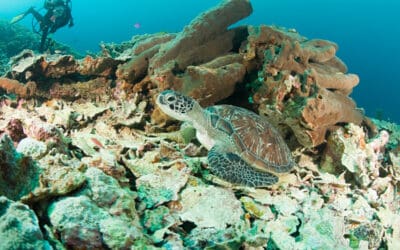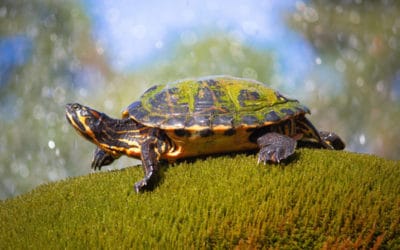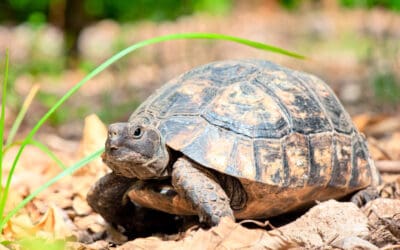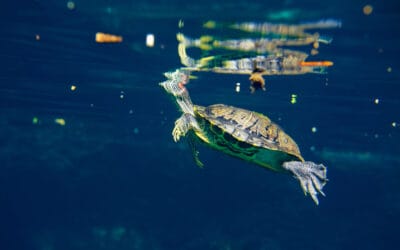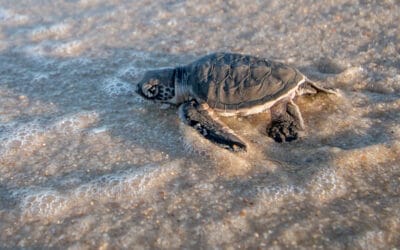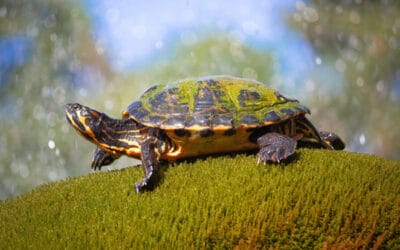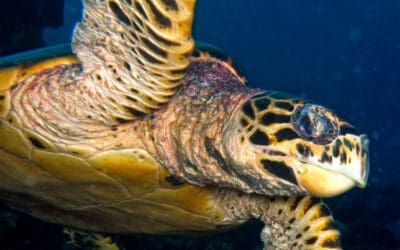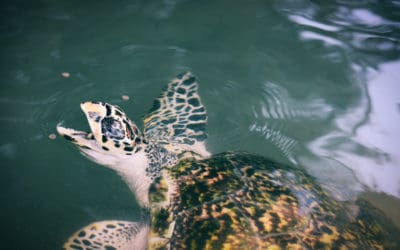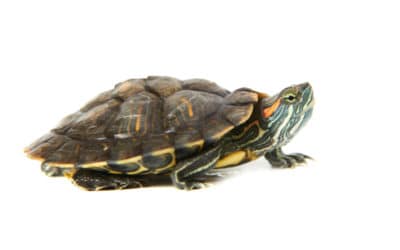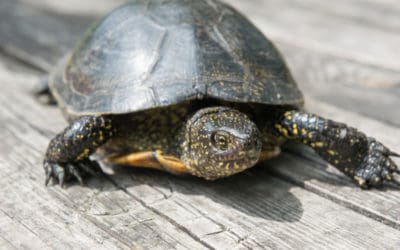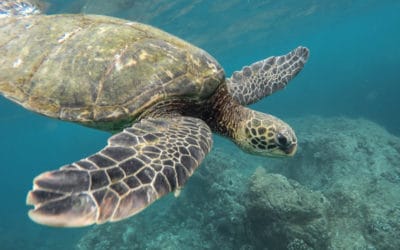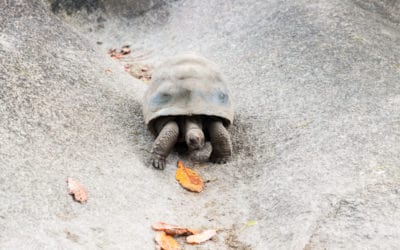A lot of animals that are found in the wilderness are nowadays turned into pets. One of the latest examples is turtles. And even if the popularity of pet turtles grew quite a lot in the last several years, there are still a lot of things that people do not know about these reptiles. One of the things that can give many people sleepless nights is the idea that there might be turtles that are poisonous to humans. But is that really the case? Is there a chance to meet a turtle that is poisonous?
Well, usually turtles are not poisonous. It means that by touching or even eating the meat of a turtle you do not risk getting any dangerous illnesses. Nevertheless, the fact that turtles are generally not poisonous does not mean that we are free to do whatever we want regardless of the consequences. You see, there are some species that can occur to be poisonous due to their diet. Besides that, there are also some diseases that these reptiles can transmit onto humans.
To make sure that you understand what poisonous means as far as turtles are concerned, first thing you have to do is to know the difference between an animal that is poisonous and venomous. Once I clear that out, I will tell you about the diseases that turtles can pass to humans, briefly talk about dangerous (to humans) species of turtles, and then talk about the bites themselves.
First of all, let’s establish differences between being poisonous and venomous
A lot of people confuse these two terms. You see, using poisonous and venomous as synonyms is a very bad idea and, simply, a wrong thing to do. You see, the best examples of venomous animals are box jellyfish, stonefish, cone snail, or web spider. Whereas poisonous animals are, for example, many amphibians in the form of frogs (can turtles eat frogs?), toads, or salamanders.
You see, the biggest difference between poisonous and venomous animals is the way the poison is applied. Venomous animals apply the poison to organism through vites or strings. In this way, they inject their toxins on purpose – either to defend itself or to paralyze the potential prey or, simply, to kill it and then eat it.
Poisonous animals do not use their “toxicity” in such a way. Their toxins are usually carried around on their skin or within some of the tissues. Some other creatures carry the poison in their internal organs, making it impossible to be eaten by other animals. Therefore, are turtles venomous? No, they are not. There is not a documented case of a turtle’s bite that would cause an infection. However, there are some dangers out there as far as these reptiles are concerned.
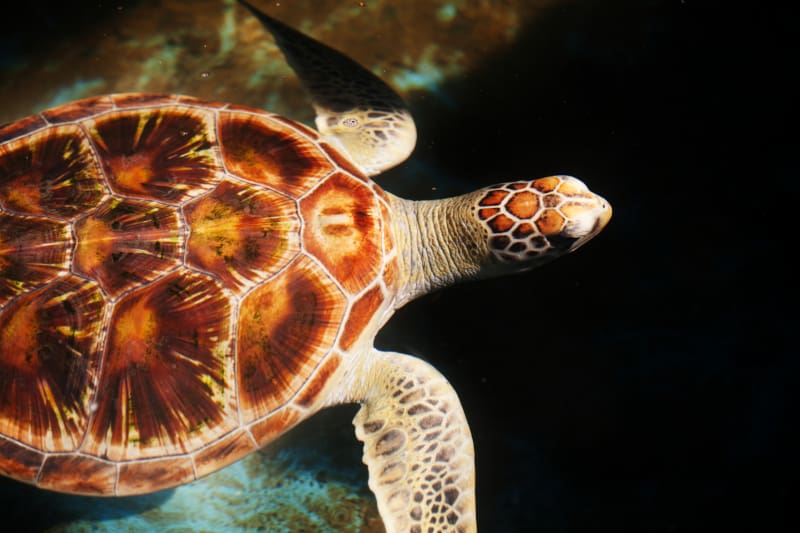
What diseases can turtles pass on humans?
Even though turtles are not generally poisonous, they can infect us, humans, with some of the diseases. It is because they are not the cleanest animals and, therefore, their body can serve as a great host for a variety of different viruses, bacterias, and other threats. One of the best examples is Salmonella.
It is a type of bacteria that in most situations is associated with food poisoning. Salmonella infection quite often leads to diarrhea, stomach cramps, fever, and nausea. Besides that, people also complain about other symptoms such as vomiting, chills, and headaches. In more pressing cases there can also be blood in the stool.
But how can turtles infect us with this bacteria? Well, the turtles’ shells are one of the best places for Salmonella bacteria to attach. Besides that, their outer skin is also a great carrier. Most creatures that people keep in aquariums, cages, or tanks can be the carrier of Salmonella. And that includes turtles just as well.
However, there is one particular species of turtles that can be considered poisonous. You see, Hawksbill turtles have a really weird diet. They love eating sponges and small animals that are usually toxic. As a result of that, the turtles themselves become toxic. Interestingly enough, it doesn’t make them sick because all the toxins are absorbed by fat. Needless to say if someone wants to eat the turtle, its meat will become poisonous, because fat stores the toxins.
What are the most dangerous turtles to humans?
Even if turtles are not poisonous, it doesn’t mean that they do not pose a threat to human beings. You see, there are quite a lot of reptiles of this kind that can be dangerous to us. Here is the list of the most popular ones:
Snapping Turtles
These turtles are more and more popular as pets. Still, they are believed to be one of the most dangerous if an owner doesn’t understand its behavior. You see, snapping turtles evolved in a slightly different way, making their shell not as protective as other turtles in terms of the percentage of the body that the shell can defend. Instead, snapping turtles tend to attack potential dangers. These turtles can bite quite ferociously and, because of their aggressive nature, they might cause quite a lot of troubles.
Leatherback Sea Turtles
If you look for one of the biggest turtles in the world, then the Leatherback Sea Turtle is a type of reptile that crosses everyone’s mind. They can be as long as 8 feet and weigh more than 2,000 pounds. Although they are gentle and do not attack in the wild, they can definitely bite if they feel threatened or if you enter its area of habitat.
Soft-Shelled Turtles
Another interesting subspecies of turtles is something that will surely surprise us with its look. You see, Soft-Shelled turtles do not have rounded shells. They are flattened. Besides that, they love hiding in the sand while waiting for their prey. Since they are omnivore, they will look for living creatures to attack. Sometimes their sharp teeth may strike humans. And the fact that these turtles do not belong to the smallest species, their bite will definitely be a powerful one.
What about the bites? Are they dangerous to humans?
As I mentioned above, there are no proven records of situations that a bite of a turtle would cause real problems with toxins. They are not venomous, so there is no way for these reptiles to spread their poison onto our body. However, we have to remember that even if there is no venom, the bite itself can be quite dangerous.
Obviously, small turtles may not even cut through skin, so there will be no blood coming out. As a result, you don’t have to worry about any bad consequences. However, if it is a big turtle and you can see blood, then you better disinfect your hand or any other part of the body in which the turtle bit you. You see, there can be a lot of bacteria in turtles’ mouths. So, you better watch out on that.
Now you know if turtles are poisonous!
Turtles are definitely not poisonous animals, but there are some exceptions. A good example is Hawksbill turtles, which eat animals and plants that contain toxins dangerous to humans. Therefore, we should never think of eating Hawksbill turtles. Besides that, we have to watch out for a wide range of bacteria that turtles can carry on their shells or skin, one of which is Salmonella.
Still, most turtles are not poisonous, so if we keep our wits and remember about hygiene (or lack thereof in the case of turtles), we don’t have to worry about any threats. As long as we don’t go for a large snapping turtle that is mad at us!
Submit your review | |

